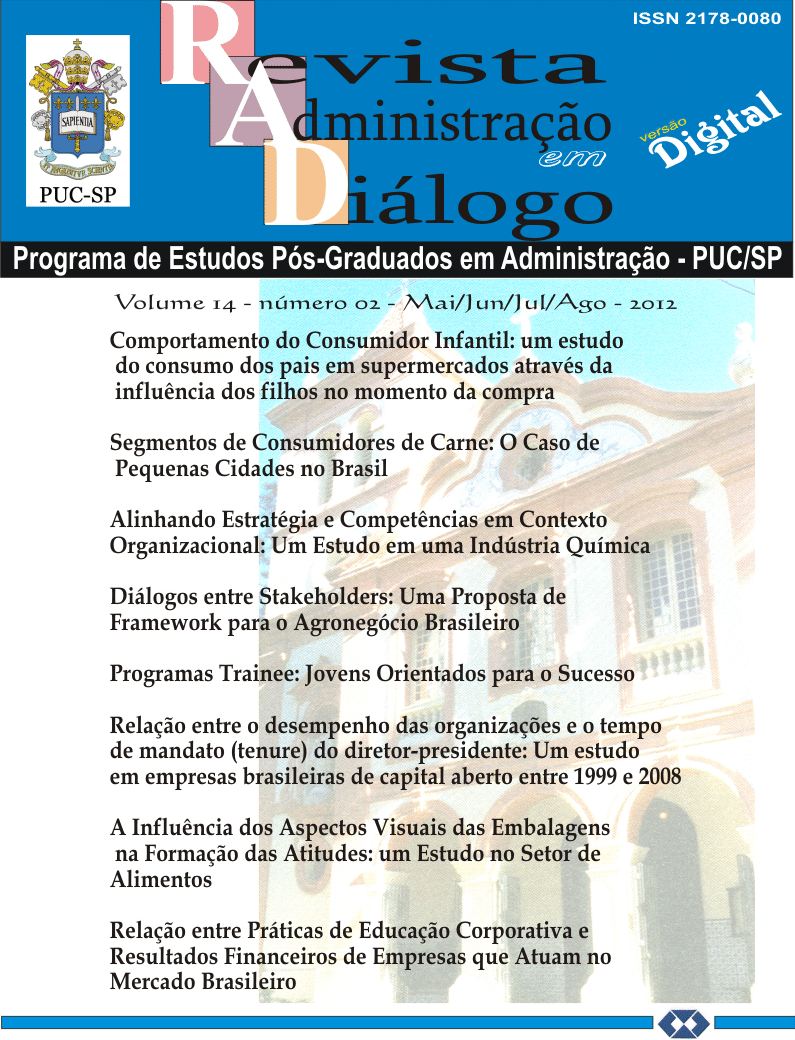Relação entre o desempenho das organizações e o tempo de mandato (tenure) do Diretor-Presidente: um estudo em empresas brasileiras de capital aberto entre 1999 e 2008
DOI:
https://doi.org/10.20946/rad.v14i2.12809Keywords:
Tempo de mandato, Desempenho da organização, Visão baseada em recursos.Abstract
Este artigo avalia a relação entre o tempo de mandato do Diretor-Presidente e o desempenho da organização. Testamos empiricamente duas hipóteses numa amostra de 34 firmas de grande porte negociadas na BOVESPA, entre 1999 e 2008. Para entender o desempenho das firmas, examinamos empresas que tiveram apenas um Diretor-Presidente durante o período. A análise permitiu concluir que (1) o tempo de mandato do Diretor-Presidente não está relacionado linearmente com o desempenho da organização, (2) o desempenho das organizações brasileiras perante o tempo de mandato dos seus Diretores-Presidentes tende a seguir uma curva em U-invertido, (3) mesmo em organizações familiares, o comportamento do desempenho assume o formato de U invertido. Isto indica que seria mais prudente realizar a sucessão do Diretor-Presidente quando a empresa inicia o declínio de desempenho.Metrics
Downloads
Published
How to Cite
Issue
Section
License
Authors who publish in this journal agree to the following terms:
1. Authors retain the copyright and grant the journal the right of first publication, with the work licensed simultaneously under a Creative Commons Attribution License after publication, allowing the sharing of work with acknowledgment of the authorship of the work and initial publication in this journal.
2. Authors are authorized to take additional contracts separately, for non-exclusive distribution of the version of the work published in this journal (eg publish in institutional repository or as a book chapter), with acknowledgment of authorship and initial publication in this journal.
3. Authors are allowed and encouraged to publish and distribute their work online (eg in institutional repositories or on their personal page) at any point before or during the editorial process, as this can generate productive changes, as well as increase the and the citation of the published work (See The Effect of Free Access).








